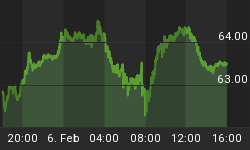You may think I have lost my mind, after all, many investors consider warrants to be a risky investment vehicle, right? Give me a few minutes and let me lay out a few facts and strategies for you to consider in your investment planning.
First, we like to make sure before continuing that everyone understands the definition of a warrant and why you would want to even consider them in your planning. We suggest you read some of our previous articles on our website, including,
"Why Warrants? - Why Now?" and Why Warrants - Why Now (Part 2)
A warrant is usually issued by a company in connection with a private financing or equity offering such as an IPO (Initial Public Offering). Warrants are like the icing on the cake as they are an "equity kicker" in the transaction. A warrant gives the investor the right, not the obligation, to acquire the underlying common stock of a company at a specific price and expiring on a specific date in the future. Many warrants are never traded on the exchanges and are held privately by mutual funds, merchant banks and private investors. However, there are numerous warrants on the mining stocks which trade on the U.S. and Canadian Exchanges which offer an investor many choices.
Warrants are usually issued by a company with as little as one year, to up to 5 years before expiring and they can offer incredible leverage which is a major advantage of owning the warrant instead of the common stock of a given company. Leverage as we know means getting the maximum return with the least amount of your investment capital at risk.
Many of the warrants currently trading offer "leverage" of better than 2:1 over the underlying common stock and it is always advised to only invest in warrants with a minimum of 2 years remaining before expiration.
Another important piece of information to first consider is your investment horizon and personal views and objectives. Do you think we are in a bull market in the precious metals? While many of us believe we are in the beginning stages of a major bull market in the mining stocks, let's assume that you are a "conservative investor" and not convinced that you should even be investing in gold bullion or gold mutual funds, much less even considering mining stocks. However, frequently, you hear that you should have a portion of your portfolio (5% - 10%) in gold as a hedge, in the event of inflation or a major disruption to our financial system, so you are somewhat confused as to what to do.
So if you followed the conventional views you would be encouraged to investment this (5% - 10% allocated to gold) by purchasing gold bullion, gold coins, a gold mutual fund or perhaps mining shares. Frankly, we do not have a problem with any of these choices.
So let's take a hypothetical portfolio of $100,000 where we have it allocated as follows:
Equity investments
$90,000
(90%)
Defensive Hedge - Gold, etc
$10,000
(10%)
Total
$100,000
Now let's assume in the effect of a major event or disruption your equity investments (tradition stocks, etc) drop by 50%) and the price of gold bullion doubles (100%). Your portfolio would now look like this:
Equity investments
$45,000
(loss of 50%)
Gold investment
$20,000
(gain of 100%)
Total
$65,000
(net loss of 35%)
Now even though we had a defensive hedge with gold, we frankly still lost our butts, with a loss of 35%. No doubt we would have fared much better with our (10%) allocated to gold stocks instead of gold bullion, but let's consider an "aggressive" defensive portfolio which includes long-term warrants.
Several analysts whom we follow speak of a "10 bagger" meaning a stock which will go up 10 times or 1,000%. Now we are talking! But what if we look to see if any of these stocks have long-term warrants which are trading.
"What if" we found 5 different mining companies (for diversification) which have long-term warrants trading and "what if" we thought the common stock of these companies had the potential to increase by 5 times or 500%. Remember, if we are right, gold, silver, etc are rising sharply. Since we are now looking at the warrants which have a leverage of at least 2:1 over the common shares, we now have a total return of 1,000%, right?
So now let's take a look at our portfolio:
Equity investments
$45,000
(50% loss)
Warrants on mining stocks
$110,000
($10,000 + $100,000))
Total
$155,000
(Profit of 55%)
Frankly, this is our idea of a defensive hedge, one in which we actually make a major profit even in the harshest of times.
Only you know if a strategy similar to the above is for you. Perhaps you would like to be even more aggressive with a larger percentage invested in warrants. The choice is yours, but isn't it nice to have choices?
Always something to remember is that warrants do not come without some risk. If the underlying stock is trading below exercise price on the expiration date, the warrant will be worthless which is why we strongly recommend investors focus on warrants which have a remaining life of at least 2 years. Time and Leverage is what we seek in our analysis of warrants.















